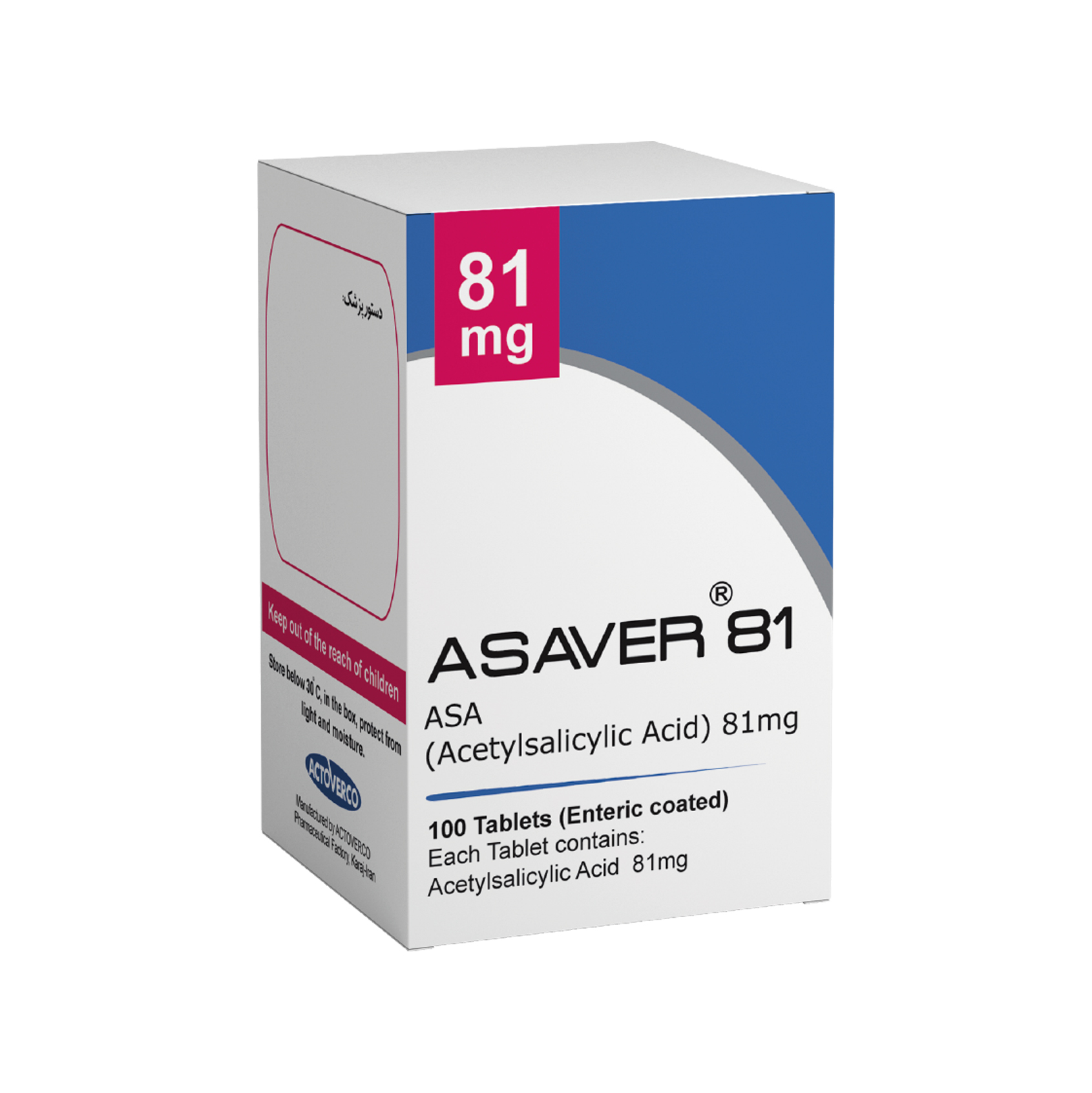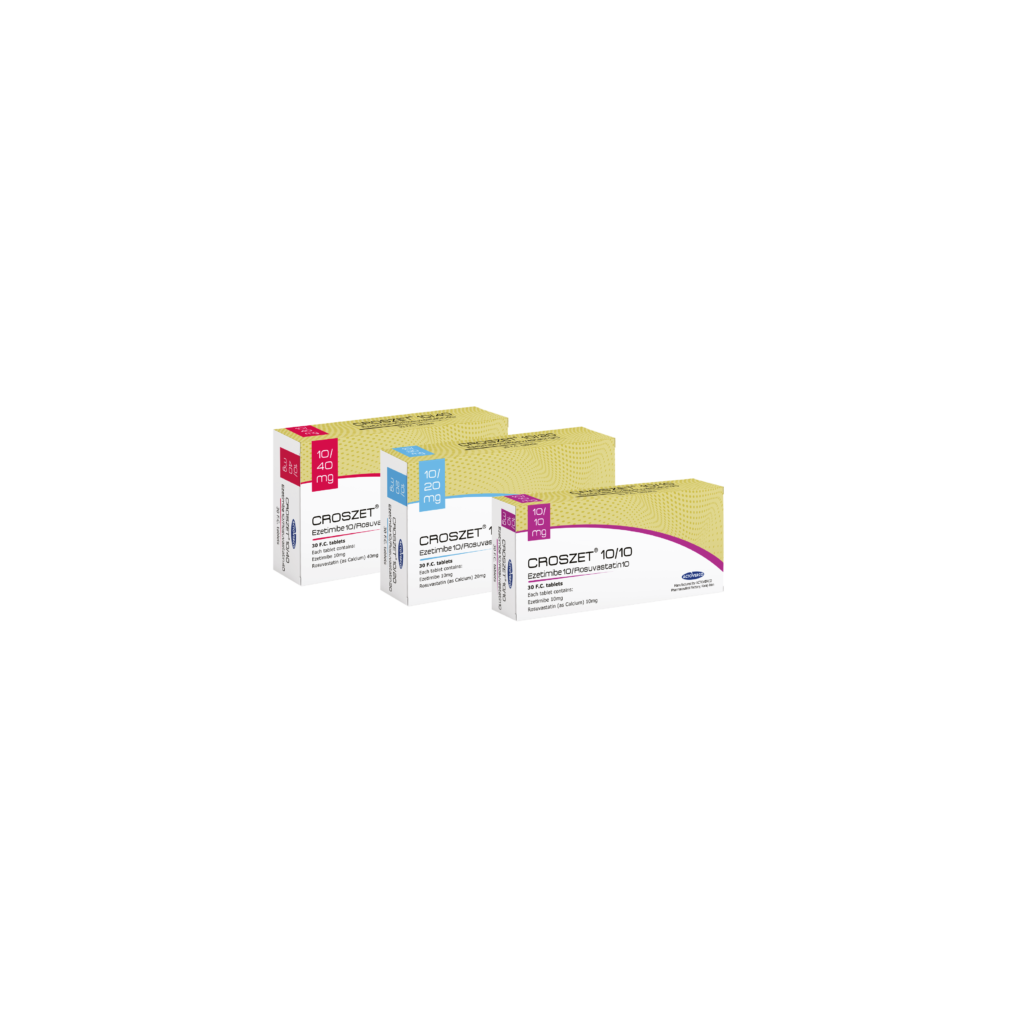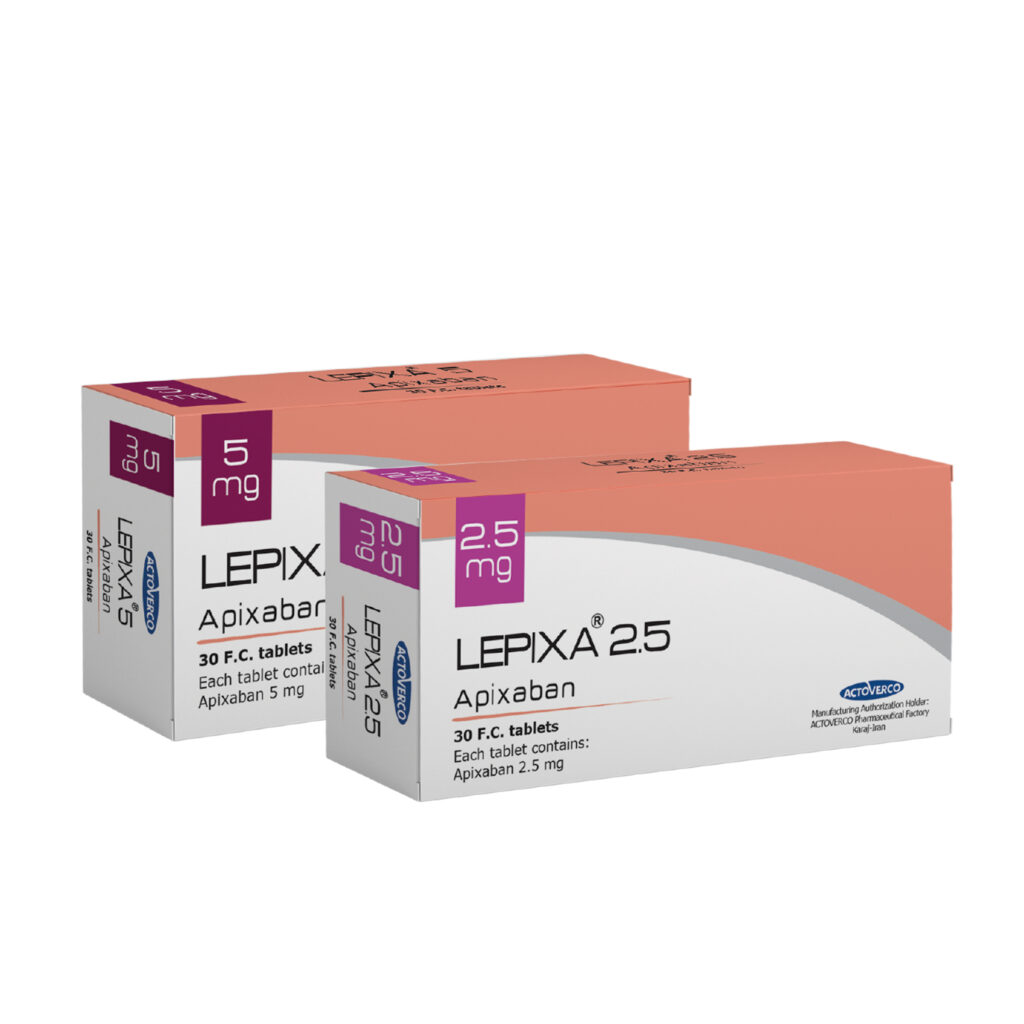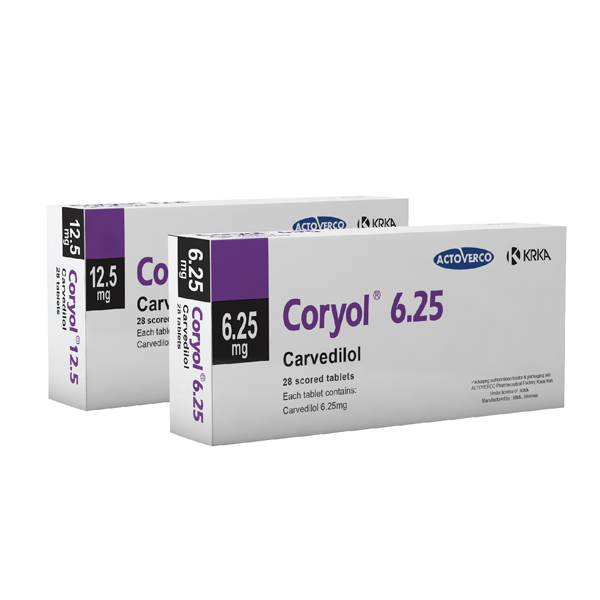Asaver (Acetylsalicylic Acid)
Asaver (Acetylsalicylic Acid)
Category: Cardiovascular Drugs
Product Description:
Asaver is brand name of drug called Aspirin and manufactured by Actoverco pharmaceutical company.
Product Introduction
Dosage form:
Tablet 81mg
What is this drug used for?
- It is used to protect bypass grafts and stents in the heart.
- It is used to lower the chance of heart attack, stroke, and death in some people.
- It may be given to you for other reasons. Talk with the doctor.
Important notes before taking Asaver (Aspirin)
- For all patients taking this drug:
- If you have an allergy to aspirin or any other part of this drug.
- If you are allergic to any drugs like this one, any other drugs, foods, or other substances. Tell your doctor about the allergy and what signs you had, like rash; hives; itching; shortness of breath; wheezing; cough; swelling of face, lips, tongue, or throat; or any other signs.
- If you have any of these health problems: Asthma, bleeding problems, nose polyps, or nose irritation.
- If you have any of these health problems: Kidney disease or liver disease.
- If you have any of these health problems: GI (gastrointestinal) bleeding or ulcer disease.
- If you are taking another drug that has the same drug in it.
- If you are taking any other NSAID.
- If you are pregnant or may be pregnant. Do not take this drug if you are in the third trimester of pregnancy. You may also need to avoid this drug at other times during pregnancy. Talk with your doctor to see when you need to avoid taking this drug during pregnancy.
- If you are breast-feeding or plan to breast-feed.
Important notes while using Asaver (Aspirin)
- All products:
- Tell all of your health care providers that you take this drug. This includes your doctors, nurses, pharmacists, and dentists.
- Have your blood work checked if you are on this drug for a long time. Talk with your doctor.
- Do not take more than what your doctor told you to take. Taking more than you are told may raise your chance of very bad side effects.
- Do not take this drug for longer than you were told by your doctor.
- If you take this drug on a regular basis, do not stop taking it without calling the doctor who ordered it for you.
- You may bleed more easily. Be careful and avoid injury. Use a soft toothbrush and an electric razor.
- Talk with your doctor before you drink alcohol.
- If you smoke, talk with your doctor.
- This drug may raise the chance of severe and sometimes deadly stomach or bowel problems like ulcers or bleeding. The risk is greater in older people, and in people who have had stomach or bowel ulcers or bleeding before. These problems may occur without warning signs.
- If you are over the age of 60, use this drug with care. You could have more side effects.
- This drug may cause harm to the unborn baby if you take it while you are pregnant. If you are pregnant or you get pregnant while taking this drug, call your doctor right away.
Asaver (Aspirin) side effects
Even though it may be rare, some people may have very bad and sometimes deadly side effects when taking a drug. Tell your doctor or get medical help right away if you have any of the following signs or symptoms that may be related to a very bad side effect:
- All products:
- Signs of an allergic reaction, like rash; hives; itching; red, swollen, blistered, or peeling skin with or without fever; wheezing; tightness in the chest or throat; trouble breathing, swallowing, or talking; unusual hoarseness; or swelling of the mouth, face, lips, tongue, or throat.
- Signs of bleeding like throwing up or coughing up blood; vomit that looks like coffee grounds; blood in the urine; black, red, or tarry stools; bleeding from the gums; abnormal vaginal bleeding; bruises without a cause or that get bigger; or bleeding you cannot stop.
- Signs of kidney problems like unable to pass urine, change in how much urine is passed, blood in the urine, or a big weight gain.
- Signs of liver problems like dark urine, feeling tired, not hungry, upset stomach or stomach pain, light-colored stools, throwing up, or yellow skin or eyes.
- Signs of high potassium levels like a heartbeat that does not feel normal; feeling confused; feeling weak, lightheaded, or dizzy; feeling like passing out; numbness or tingling; or shortness of breath.
- Signs of too much acid in the blood (acidosis) like confusion; fast breathing; fast heartbeat; a heartbeat that does not feel normal; very bad stomach pain, upset stomach, or throwing up; feeling very sleepy; shortness of breath; or feeling very tired or weak.
- Weakness on 1 side of the body, trouble speaking or thinking, change in balance, drooping on one side of the face, or blurred eyesight.
- Very bad dizziness or passing out.
- Very bad headache.
- Ringing in the ears, hearing loss, or any other changes in hearing.
- Feeling agitated.
- Seizures.
What do I do if I miss a dose?
- Take a missed dose as soon as you think about it.
- If it is close to the time for your next dose, skip the missed dose and go back to your normal time.
- Do not take 2 doses at the same time or extra doses.
How do I store and/or throw out this drug?
- All oral products:
- Store at room temperature.
- Store in a dry place. Do not store in a bathroom.
- All products:
- Keep all drugs in a safe place. Keep all drugs out of the reach of children and pets.
- Throw away unused or expired drugs. Do not flush down a toilet or pour down a drain unless you are told to do so. Check with your pharmacist if you have questions about the best way to throw out drugs. There may be drug take-back programs in your area.













